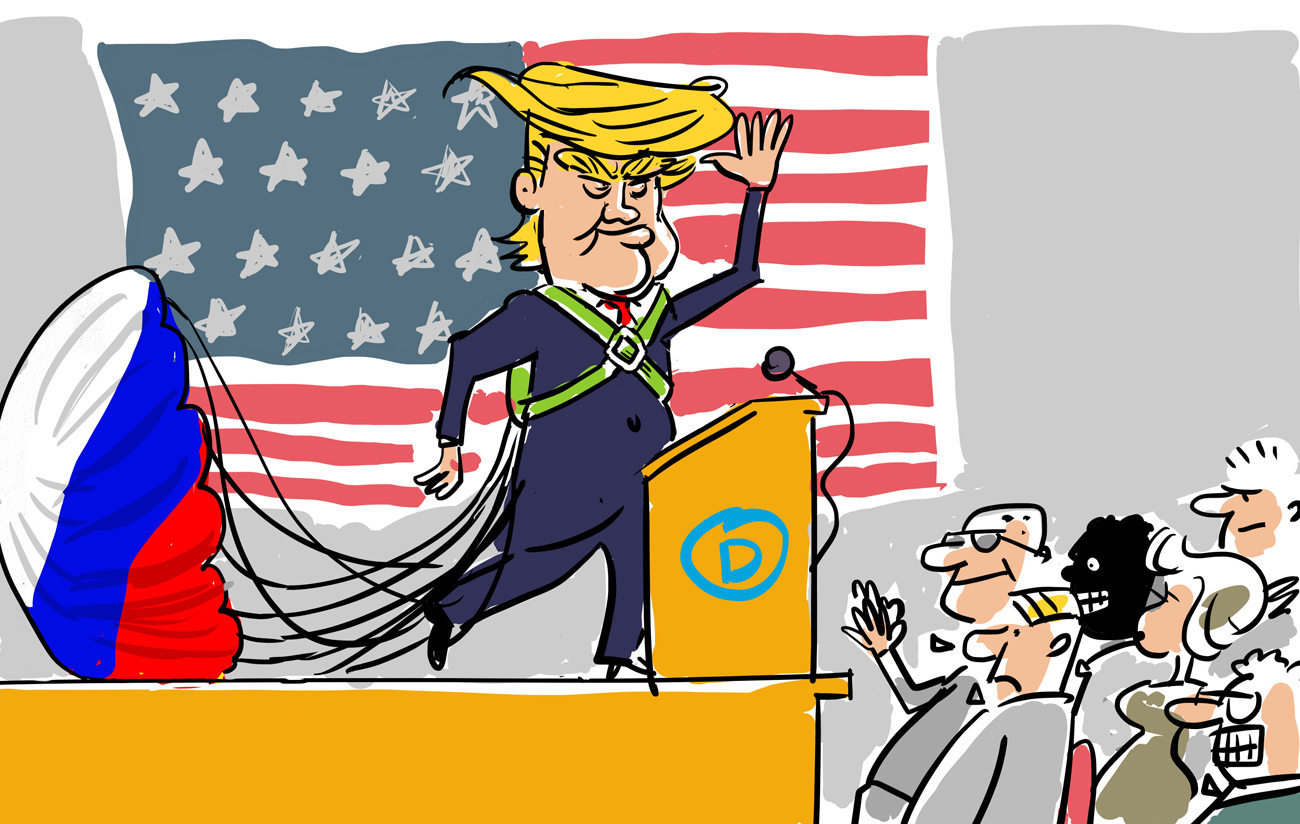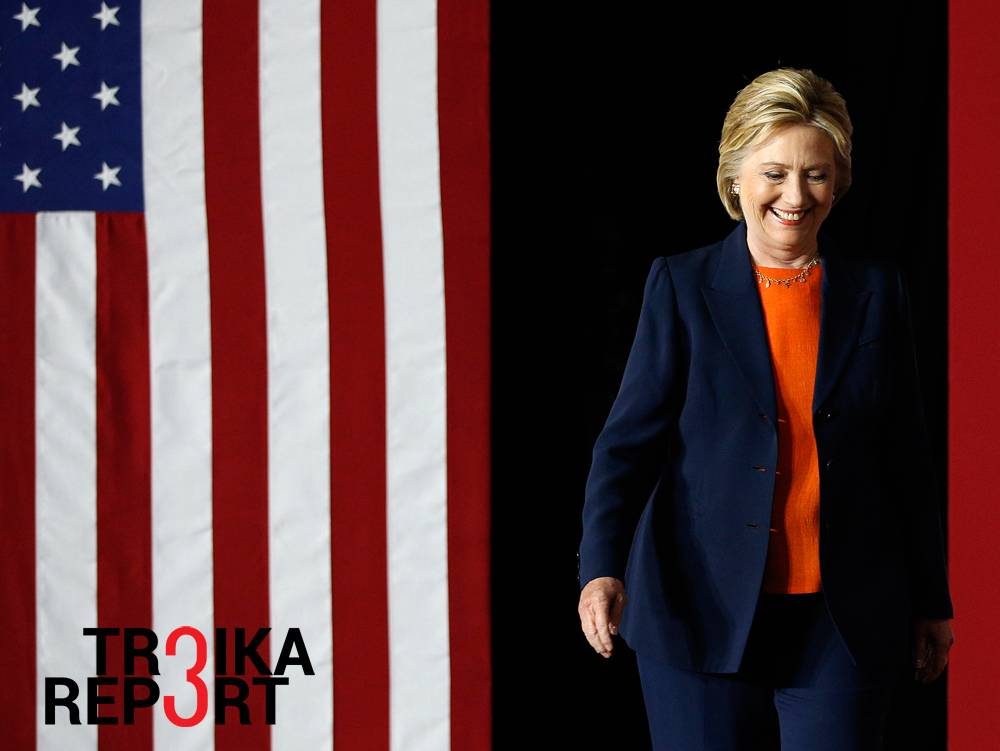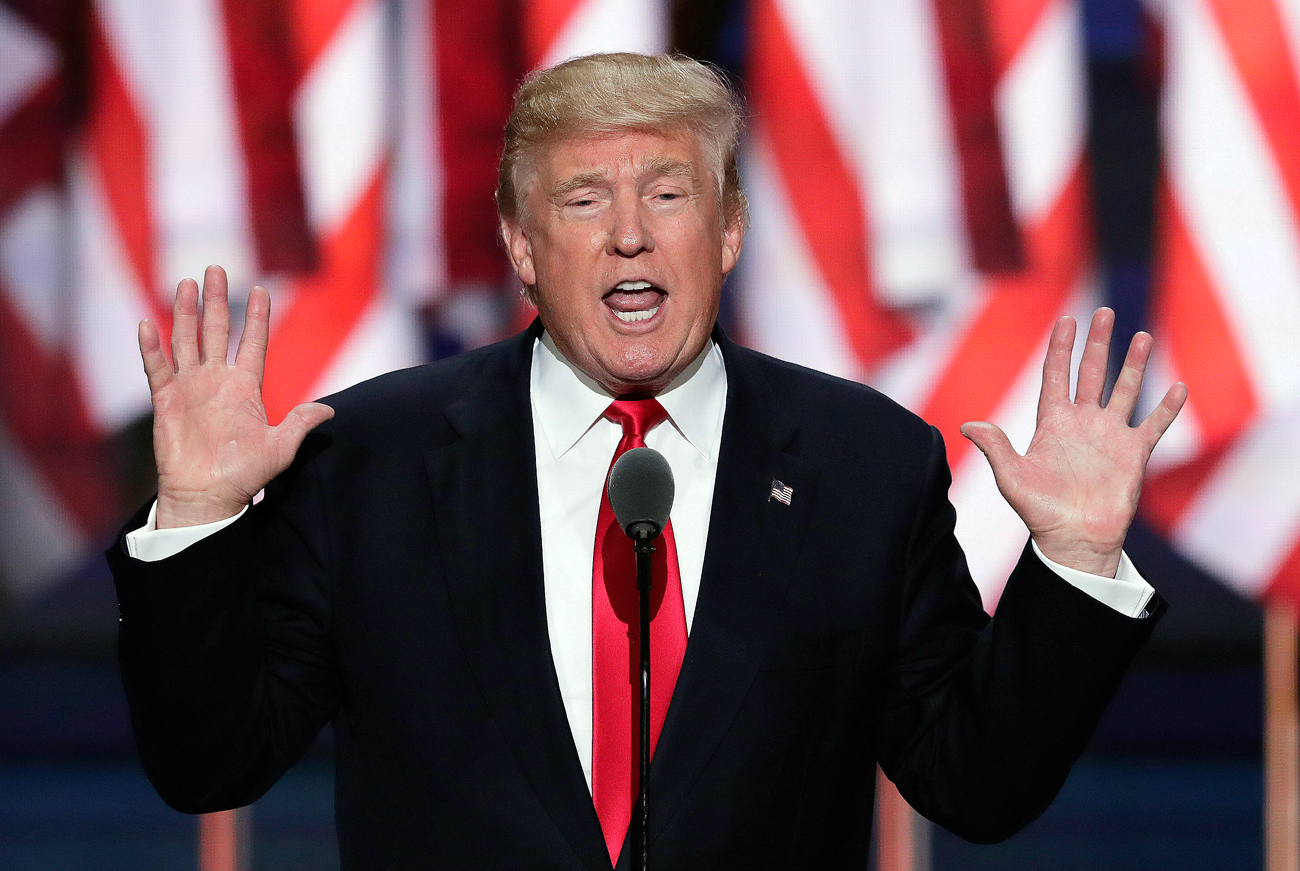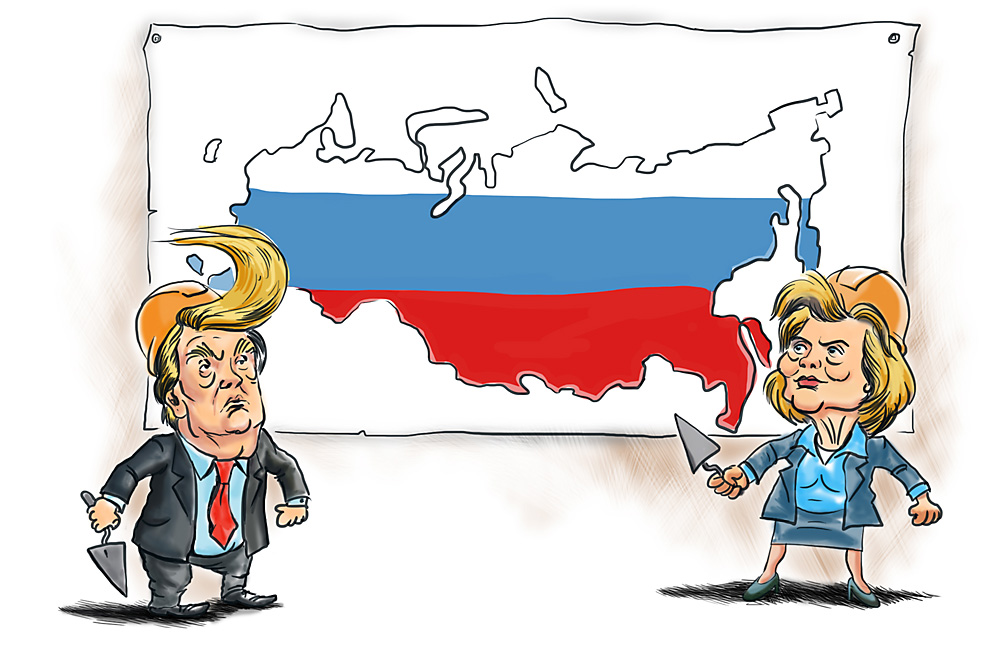U.S. elections: How Trump became ‘Putin's agent’

Georgy Bovt: "The 20,000 Democratic Party letters that Wikileaks published say that Hillary Clinton did not win the primaries in an honest way. And Trump has nothing to do with it. And neither does Putin."
IorshThe U.S. Democratic Party has found a new slogan for its election campaign: "Trump is Vladimir Putin's agent." However, for now this slogan has only borne witness to the Republican candidate, an eccentric billionaire, taking a lead in social polls over former U.S. Secretary of State Hillary Clinton for the first time in the race for the White House.
The scandal involving a Wikileaks leak about Democratic National Committee correspondence broke out on the eve of the party convention, which nominated the presidential candidate. It turned out (and there had already been suspicions) that there is fairly clear evidence that the party apparatus favored Hillary Clinton over rival Bernie Sanders in the primaries. Chairperson of the Democratic National Committee Debbie Wasserman Schultz, who is implicated in the abuse of an "administrative resource," was forced to resign immediately after the convention.
And now, just like the Russian “patriots” who always blame everything on the omnipresent U.S. State Department, American Democrats have tried to turn their in-party debacle into an electoral advantage by claiming that Russian President Vladimir Putin is responsible for the hackers breaking into party correspondence – hackers, that is, from the FSB or the GRU, the main intelligence agency. The theory is being examined by the FBI and important members of the Obama administration.
Hints and denials
Journalists from U.S. Secretary of State John Kerry's pool shouted the question-accusation at Russian Foreign Minister Sergei Lavrov during talks between the two in Laos on July 26. Lavrov rebuffed them, saying that he would not like to "use the famous English four-letter word."
At the same time, Obama stopped one step short of officially accusing Moscow. "Anything is possible," said Obama when asked by an NBC reporter if Russia could have influenced the American elections in order to have the people vote for Trump. “And I think that Trump's gotten pretty favorable coverage back in Russia," he added.
It turns out that one of the main purposes of the U.S. electoral campaign, judging from this logic, is to elect a U.S. president that Putin would not like. As if America does not have more important problems.
Even whistleblower and ex-NSA agent Edward Snowden could not remain silent in his Russian political asylum. He reminded everyone that the National Security Agency and the CIA have a program called XKeyscore, which was launched in 2013 to help determine the place of origin of a hacker's attack. Back when North Korea was accused of hacking into the Sony site, it was XKeyscore that was used. Currently, the U.S. administration either limits itself to allusions or directs its accusations at private companies that specialize in the field of cyber security.
Unintended consequences
Whatever the case, the use of such a strange weapon (which is basically one's own dirty laundry) against Trump could have unexpected consequences for the Democrats.
Firstly, experienced political analysts know that excessive "negative campaigning" and slander can backfire: He who is painted as the devil by his opponents will sooner or later start winning points. You cannot besmirch a person so shamelessly. And now Trump is leading Clinton in the polls by about 3-5 percent.
Secondly, as conservative Republican ideologist Patrick Buchanan caustically replied to the Democrats' accusations, America "was the first" to interfere in other countries' policies during the Cold War using NGOs (which in turn brought about limits to their activities in Russia, China and recently Israel) and other methods of eavesdropping and internet surveillance.
Furthermore, Buchanan insists that if Russia did break into the Democrats' correspondence, than it should receive a Pulitzer Prize for journalism – for revealing methods of dirty manipulation and the subversion of honest elections.
This is what The New York Times did in the 1970s when it published secret documents from the Kennedy and Johnson administrations concerning the preparation for the Vietnam War, revealing dirty methods and provocations. It was for these publications that the newspaper was awarded the Pulitzer Prize in 1971. Why not award Putin now, said Buchanan sardonically.
And in a way I agree with him. The 20,000 Democratic Party letters that Wikileaks published say that Hillary Clinton did not win the primaries in an honest way. And Trump has nothing to do with it. And neither does Putin.
The opinion of the writer may not necessarily reflect the position of RBTH or its staff.
QUIZ: Who said it, Donald Trump or Vladimir Zhirinovsky?
Subscribe to get the hand picked best stories every week
All rights reserved by Rossiyskaya Gazeta.
Subscribe
to our newsletter!
Get the week's best stories straight to your inbox


